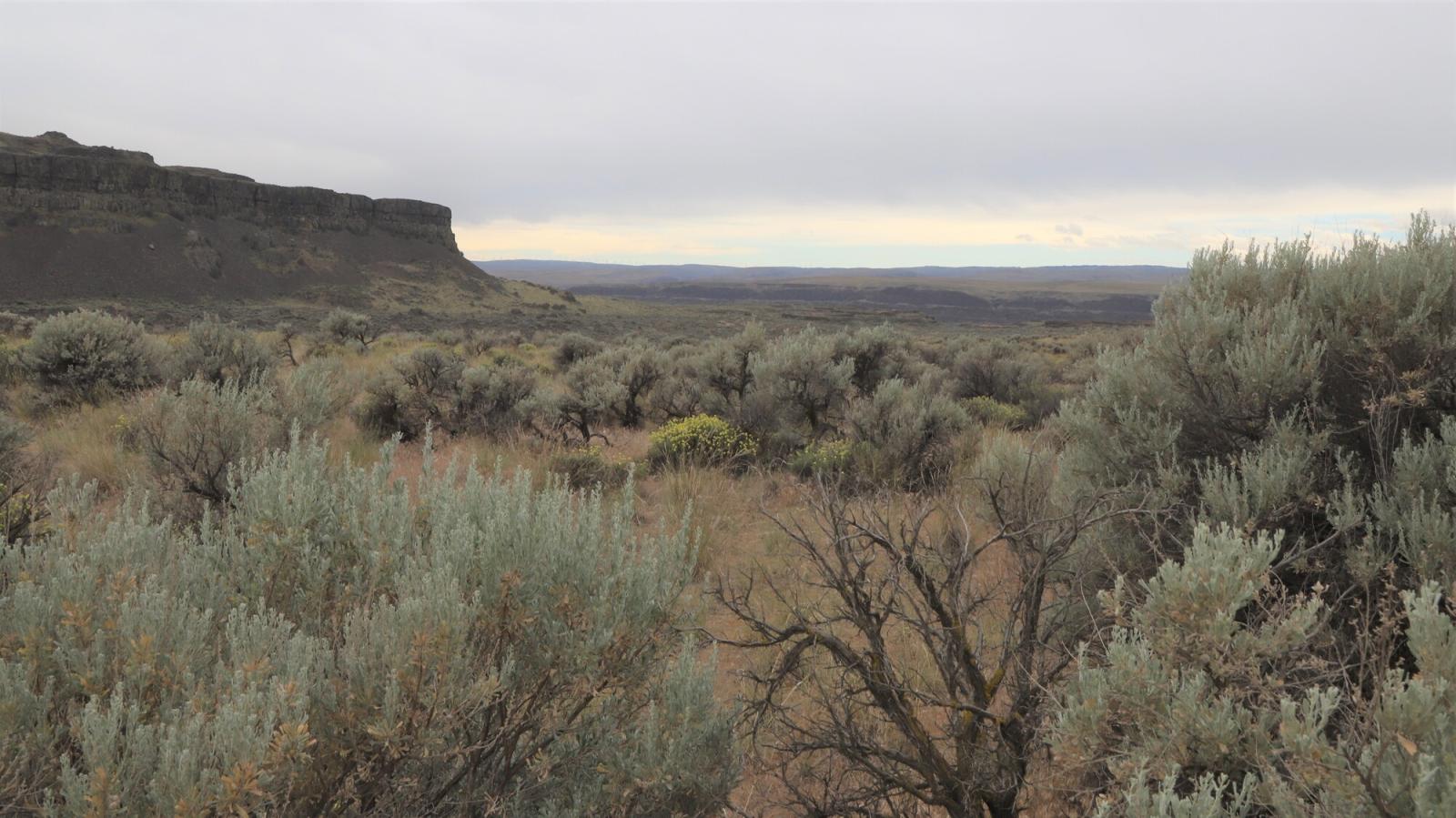Photos
Click to display full size or right-click to save to your device.
ARCHIVED NEWS RELEASE
This document is provided for archival purposes only. Archived documents
do not reflect current WDFW regulations or policy and may contain factual
inaccuracies.
News release Feb. 6, 2023
Eryn Couch, 360-890-6604
OLYMPIA – The Washington Department of Fish and Wildlife (WDFW), Washington State Conservation Commission (SCC), and Washington State Department of Natural Resources (DNR) are seeking project proposals to benefit wildlife affected by wildfire on private, tribal, and public lands in eastern Washington.
Following historic fires in 2020 that burned 600,000 acres of shrubsteppe habitat in Washington, the Washington State Legislature made new funding available to benefit wildlife by restoring shrubsteppe habitat, implementing actions to help at-risk species, and supporting working lands in eastern Washington.
The Washington Shrubsteppe Restoration and Resiliency Initiative (WSRRI) coordinates and delivers resources and services at a landscape scale to promote resilience for wildlife and communities. The initiative is the first large-scale concerted effort by Washington state to channel resources immediately after wildfire to impacted shrubsteppe habitat.
"Washington's shrubsteppe habitat, wildlife, and communities are facing many threats, so protecting and restoring remaining shrubsteppe habitat is more important than ever," said Kelly Susewind, WDFW Director. "We're excited to be able to bring these opportunities to landowners and managers to benefit both wildlife and working lands."
"Conservation districts are ready to assist landowners with developing projects and applying for resources to implement," said Shana Joy, SCC's Regional Manager Coordinator. "The WSRRI effort is extremely important for wildlife, habitat, and communities in the shrubsteppe and every project contributes to our overall goals."
"Washington's shrubsteppe provides critical habitat for iconic Western species like sage grouse, homes and livelihoods for many eastern Washingtonians, and vital hunting, gathering, and ceremonial lands for eastern Washington's indigenous communities," said Commissioner of Public Lands Hilary Franz, the elected official who oversees DNR. "Post-fire recovery is a critical need in Washington state, but it is particularly important in these communities affected most often and most critically by wildfire."
Resources are available for projects that will restore shrubsteppe and riparian habitats, rebuild needed fencing to wildlife-friendly standards, and support habitat recovery by reimbursing producers for supplemental feed or pasture rental after a wildfire. Initiative partners prioritize funding and services on habitat damaged by the Pearl Hill, Whitney, and Cold Springs fires in 2020; Burbank, Bateman Road, Beezley, Chuweah Creek, and Whitehall Road fires in 2021; and Mohr, Nilles, and Vantage Highway fires in 2022. However, habitat restoration and wildlife-friendly fencing projects are welcome from all areas throughout the Columbia Plateau. Eligible counties include Adams, Asotin, Benton, Columbia, Douglas, Franklin, Garfield, Grant, Kittitas, Klickitat, Lincoln, Okanogan, Spokane, Whitman, and Yakima.
Proposal review will start on Feb. 20 and will continue on an ongoing basis until available resources are allocated. It is in the best interest of applicants to reach out to their conservation district or WSRRI coordinator as soon as possible. Initiative partners will notify applicants of their project acceptance status by the end of April 2023.
Public and tribal land managers, lessees of public land, and private landowners are encouraged to contact their local conservation district to learn more about and submit project proposals for deferred grazing and wildlife-friendly fencing. For habitat restoration projects, contact WSRRI Shrubsteppe Restoration Coordinator Kurt Merg at 509-288-7067.
To learn more about the WSRRI and the long-term collaborative strategy for shrubsteppe conservation, visit WDFW's website.
For more information about shrubsteppe habitats in Washington, visit WDFW's website or reference the short film "This Land is Part of Us," produced in partnership with Conservation Northwest.
The Washington Department of Fish and Wildlife works to preserve, protect and perpetuate fish, wildlife and ecosystems while providing sustainable fish and wildlife recreational and commercial opportunities.
The Washington State Conservation Commission (SCC) is the coordinating state agency for all 45 conservation districts in Washington State. Together, the SCC and CDs provide voluntary, incentive-based programs that empower people to practice conservation and ensure healthy natural resources and agriculture for all. Visit our website to learn more about our commission members and commission meetings.
Administered by Commissioner of Public Lands Hilary Franz, DNR manages more than 5.6 million acres of state-owned forest, range, commercial, agricultural, conservation, and aquatic lands. Of these, more than half are held in trust to produce income to support public schools and other essential services. State trust lands managed by DNR provide other public benefits, including outdoor recreation, habitat for native fish and wildlife, and watersheds for clean water.
